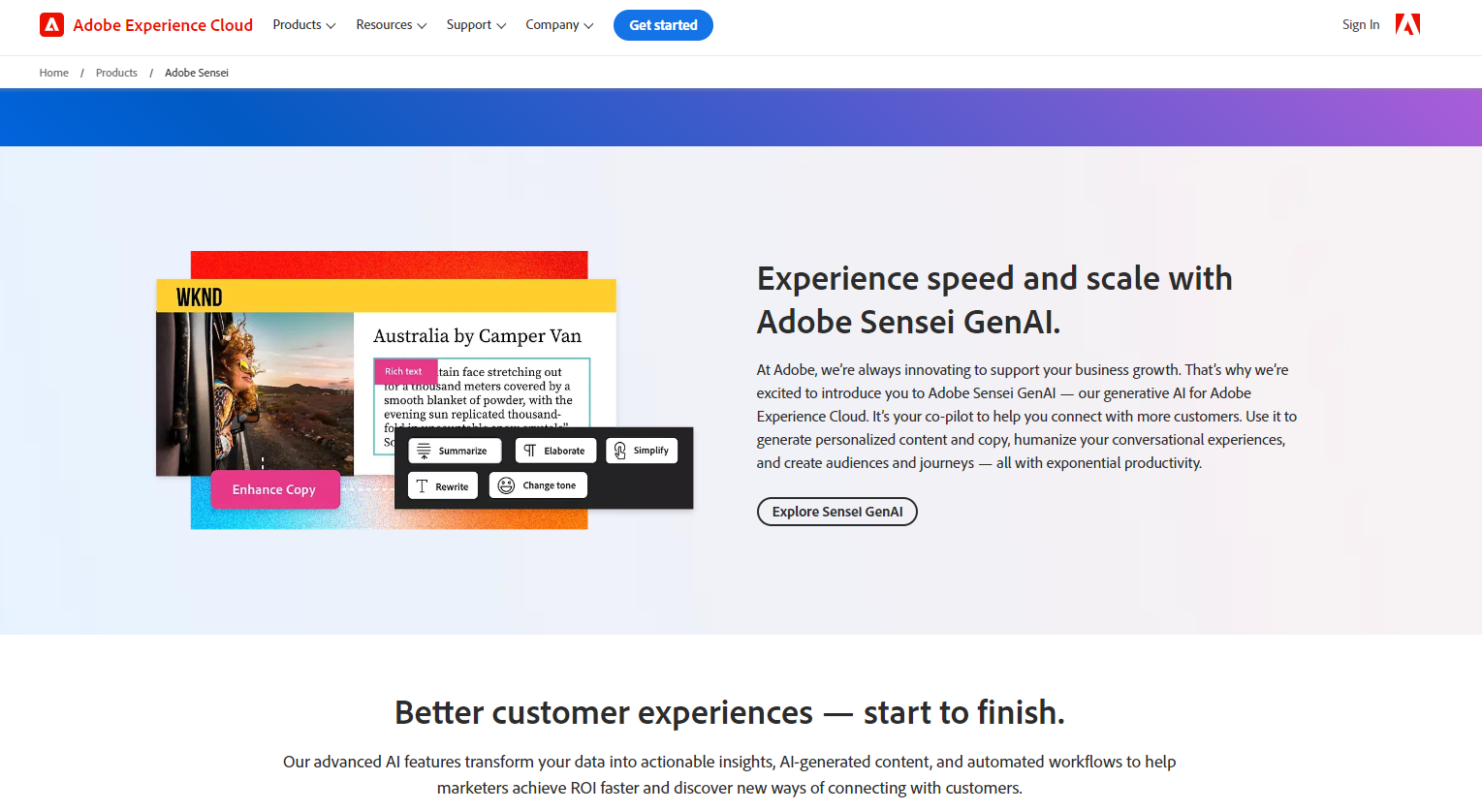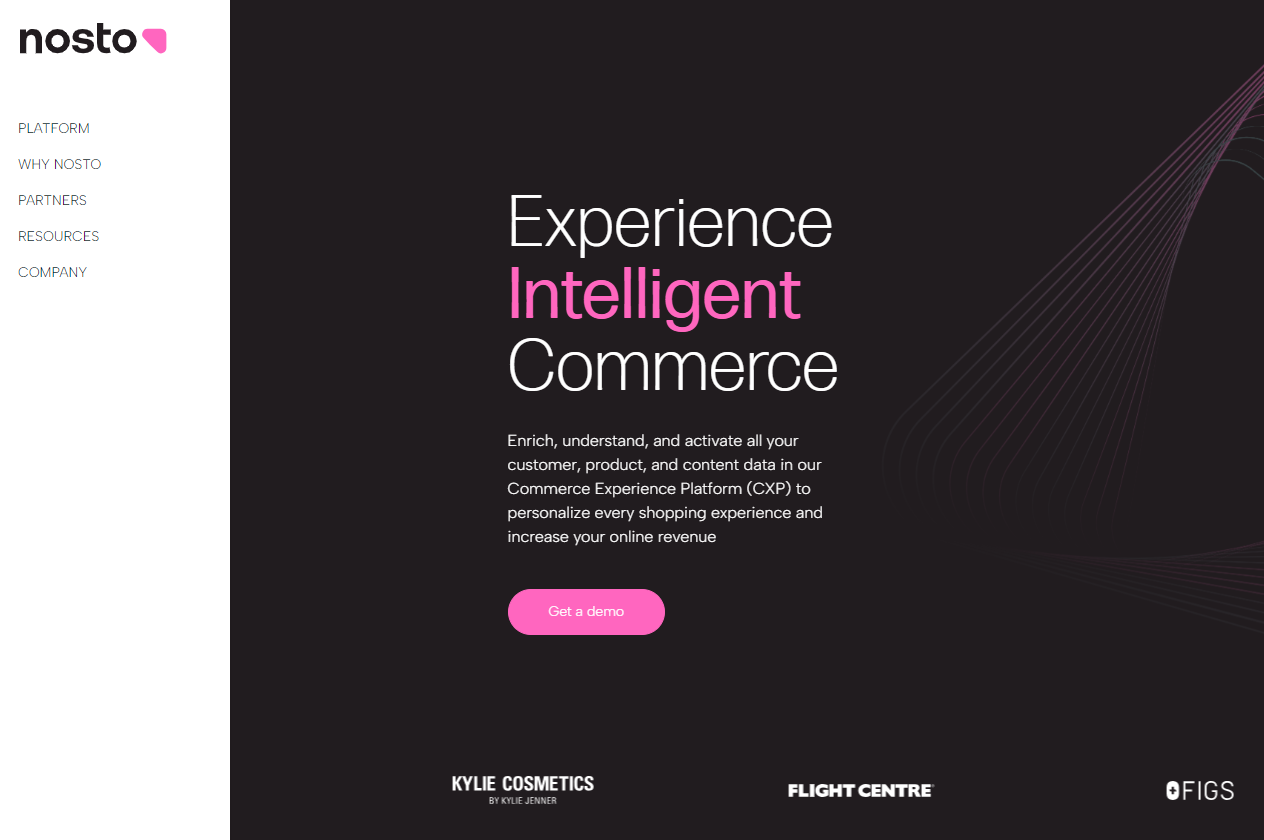Hyvä Theme is Now Open Source: What This Means for Magento Community - Mageplaza
Hyvä is now Open Source and free. Discover what changed, what remains commercial, how it impacts the Magento ecosystem, and how to maximize its full potential.

Nowadays, consumers have a very complex buying process. They research prices and specs online, try the products in physical stores, and compare eCommerce sites for trustworthiness (those offering glitch-free payment gateways and stress-free refund policies) and ease of checkout.
According to a recent study from SmarterHQ, 72% of consumers will only engage with personalized marketing messages, while another metric shows that the most desired form of personalized marketing for consumers is the one containing special offers and discounts, over relevant products or brands. So, it is clearer than ever that a unified and personalized shopping experience across multiple online and offline channels has become the mantra for repeated sales conversion for any brand.
The same implies to those brands using Magento as their eCommerce platform. Creating an omnichannel and personal Customer Experience is daunting, so in this article, we gathered 5 simplest yet effective Magento personalization strategies that could help your company “craft” a solid personalization mix.
Magento personalization is the process of enhancing the marketing strategy of your Magento store with e-commerce personalization best practices & tactics to increase your website sales & conversions, through highly relevant and targeted messages. To create an all-around personalization strategy for your Magento store, you will need reliable marketing automation or customer engagement solution, providing a Magento extension for seamless integration.
Here are the 5 personalization strategies I recommend building for your Magento store.
Why this is important:
Customer Segmentation is the main pillar of a solid and viable personalization strategy. Segmenting your audiences is an extremely important ingredient of the process in order to deliver highly targeted campaigns. It is not enough to collect generic behavioral data; you need to segment this data to match your customer personas so as to be able to serve personalized content.
Once visitor behavior analytics is installed, the segments’ information is automatically updated - as the customers continue to shop, their preferences are reflected in the database. Targeted marketing initiatives such as personalized offers, cart price rules, and banners can be devised based on the updated searches.
Skip this step and doom your brand to deliver generic, low-converting messages to your customers.
Examples to replicate:
Here are some commonly used and effective customer segmentation examples you should copy:
Demographic segmentation:
Behavioral segmentation useful to every eCommerce business:
Why this is important:
Once the segments are set up, you can move on to implementing some proven personalization strategies. Showcasing your best-selling products on strategic locations of your Magento store can help conversions rise (homepage, category pages). This strategy can be customized for a certain segment of your buyers (based on gender, age, or location) for a defined time duration (the holiday season invariably results in a lot of quick purchases, so make sure you keep the ticking clock visible).
You can design the widget or write the shortcode, decide if you display the price, user ratings (always an advantage), and add-to-cart/wish list button. Magento 2 Personalization extension allows you to aptly promote the top sellers of your store and boost your sales revenue.
Examples to replicate:
Why this is important:
Exit-intent pop-ups are a must for every eCommerce store since they are the last “weapon” a store manager has to prevent a visitor from leaving the website. The bad thing about pop-ups, in general, is that people hate them UNLESS they deliver something useful to them. So, based on our experience, the most effective content you can serve to keep the new visitor engaged is offering a limited-time offer for a top-selling product, always from a relevant category.
If you have technical skills, you can create a popup for Magento 2 store on your own, use a Magento extension or as we mentioned above, an all-in-one solution to avoid using multiple code snippets and face performance issues as well.
Examples to replicate:
Why this is important:
Sending regular emails to your consumers is a great way to ensure repeat purchases and brand loyalty. Also, sending behavioral-triggered monthly emails to your customers with relevant product recommendations can skyrocket your email conversions up to 25%, according to Barrilliance. All you need to do is integrate the viable products into the current template. The rest of the task is handled seamlessly by the extension. So a smartly designed ‘you may also like..’ triggered email campaign can contribute to additional monthly revenue for your business.
Read more:
Examples to replicate:
Why this is important:
This is super effective on global brands selling to multiple countries. One of the best Magento personalization best practices is to spot your top 3 countries and create dedicated location-based offers for each region, based on your historical data and visitor preferences.
Running location-based or country-based promotions from global brands generates great conversions, especially if you can even create some localized/translated landing pages.
This personalization strategy can help your brand in three dimensions: increase your revenue, ensure customer loyalty, and help in word-of-mouth publicity.
Read more:
Examples to replicate:
Personalization in online shopping creates a unique and relevant experience for each visitor. The approach helps recommend products matching customer preferences and actions for enhanced satisfaction. Here’s why personalization matters:
Personalized experiences promote customer loyalty. By understanding individual preferences and needs, you can address concerns directly, leading to long-term loyalty. Thus, customers will like to return.
Personalization isn’t just about making customers feel good; it’s about making their shopping experience easier and more efficient. By streamlining processes with personalized product recommendations and intuitive search engines, you remove obstacles and frustration.
Customizing product recommendations enhances the customer experience by helping them find products that they want. This personalized approach can lead to increased sales and revenue because customers are more likely to make purchases when they see items that match their preferences and needs.

Adobe Sensei is considered an artificial intelligence technology that allows users to create and provide highly personalized experiences.
It seamlessly integrates with the Adobe Experience Cloud, which enables businesses to gather and analyze data from various online interactions. By using data from different online interactions within a business, Adobe Sensei helps bridge the gap between planning and implementation.
Some highlight features of Adobe Sensei’s Personalized Product Recommendations include:
Collect data quickly and understand customer actions
Recommend products based on what is important right now
Add product suggestions to your store pages easily
Customize the appearance of your product suggestion boxes
Remove products depending on inventory or pricing
Here are some other personalization extensions for Magento 2 that can enhance your e-commerce experience:

Nosto: Nosto provides product suggestions, personalized emails, and targeted content. It helps you attract your customers effectively by adjusting recommendations based on their behavior and preferences.
Segmentify: Using artificial intelligence, Segmentify suggests relevant products to customers. Additionally, you can integrate personalized emails and optimize your content.
TargetBay: TargetBay offers features such as personalized product suggestions, email marketing, and customer reviews, helping you build stronger customer relationships.
Recolize: With Recolize, you can create personalized product recommendations content, and offer exclusive deals to your audience.
ARM Treasure Data: ARM Treasure Data collaborates with Magento 2 to create personalized marketing campaigns, allowing you to reach your audience with suitable messages.
It is necessary to follow these strategies to make personalization work well in your Magento 2 store. Let’s explore some effective strategies below:

Start by segmenting your customers based on various criteria such as age, gender, style, or location. Understanding your customer groups allows you to adjust marketing messages and product recommendations to their preferences. For instance:
Group customers by age, gender, or buying behavior.
Create personalized messages for each group.
When you’ve grouped your customers, showcase the best-selling products within each category to the relevant audience. Consider offering special deals or promotions based on their interests. Examples include:
Sending notifications with top-selling products.
Email marketing campaigns highlighting best sellers.
Implement exit pop-ups that display limited-time offers for top-selling products. These pop-ups can help keep visitors on your website. Remember to make the offers relevant to the category they previously explored.
Create exit pop-ups for different categories.
Use social media ads to target non-buyers with specific offers.

Regular email campaigns can boost customer loyalty and increase sales. Add the best products to your email templates, and let the extension handle the rest. Try the following:
Create email campaigns for your top product categories.
Customize the product recommendations for each customer group.
If you’re a global brand selling to multiple countries, adjust your promotions based on regional preferences. Then, it is necessary to identify your top-performing regions and offer localized deals. Find your three best-selling regions and create targeted promotions.
By continuing to try new things and improving personalization, businesses can better meet their customers’ growing preferences and needs, leading to increased satisfaction and loyalty.
Remember that Magento personalization relies on understanding your customers and delivering relevant content. You can use marketing tools such as Adobe Sensei or other extensions that integrate seamlessly with Magento 2 to implement these strategies effectively.
Magento personalization helps to enhance user experience, boosts conversion rates, and fosters customer loyalty by showing the right content, deals, and product suggestions.
Yes, Magento personalization can be seamlessly integrated with various e-commerce platforms, allowing businesses to make use of its benefits via different channels.
A personalization extension is a tool that helps Magento 2 store owners create a more personalized shopping experience for their customers. These extensions allow you to adjust content, recommendations, and interactions based on individual preferences. Some popular examples include:
Adobe Sensei
Nosto
Recolize
TargetBay
Segmentify
Absolutely! Magento personalization is scalable and adaptable, making it suitable for businesses of all sizes. Whether you’re a small or a large enterprise, personalized experiences can help your enterprise become stand out in the crowded e-commerce market.
Absolutely! You can apply personalized shopping experiences on category pages to display personalized product suggestions, pages, banners, or content. This strategic approach not only captures customers’ interest but also increases the conversion rate.
Although several personalization tools for Magento 2 must be paid for, there are also free alternatives available. One such option is the Magento 2 Customer Segmentation module. This module enables you to group customers for targeted marketing efforts, enhancing their overall experience in your store.
Magento personalization adheres to strict data privacy regulations and uses security measures to protect user information. By anonymizing data and receiving user agreements, businesses can ensure compliance with privacy laws while delivering personalized experiences.
To measure your business’s performance, it’s crucial to keep an eye on various key metrics. These include conversion rates, average order value, customer retention rates, and engagement metrics such as click-through rates and time spent on site.
Successfully running an e-commerce business in the face of stiff and rising competition requires bold strategic thinking skills, time-sensitive decision-making, and an execution-driven mentality.
Consumers demand better and more relevant marketing messages from the brands. Implementing the above-mentioned Magento personalization strategies can help your business get on the right track.
However, keep in mind that each industry and each business has its own unique challenges and characteristics. This means that a company needs to continuously test and adjust its strategies and marketing mix, in order to unlock growth, repeatedly.




